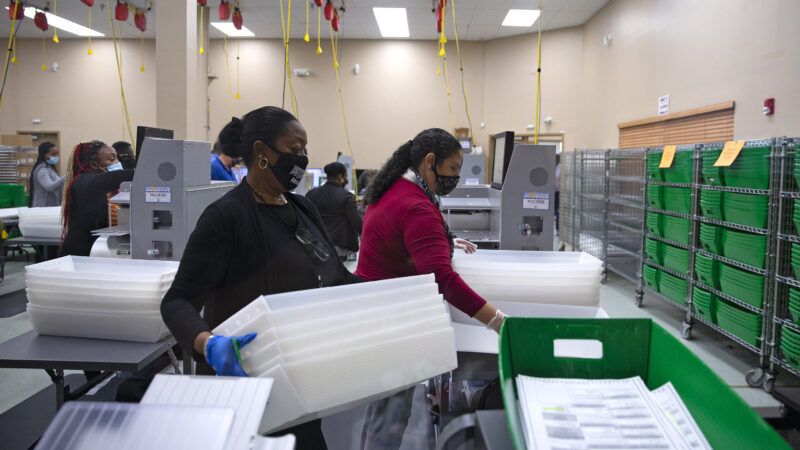Florida County Approves Bad Spanish Translation of Property Tax Ballot Measure
The Spanish text contains inaccurate translations of technical tax language and direct translations of phrases like "school resource officers," which could confuse voters.

Officials in Broward County, Florida, might need to enroll in some remedial Spanish classes.
The South Florida Sun Sentinel is reporting that school board and county office officials approved a Spanish translation of a ballot measure containing glaring errors. The English text of the measure, introduced by members of the school board back in July, asks voters to approve a property tax increase to raise teacher salaries, hire school resource officers, and create new mental health resources for K-12 students. The measure would double the local property tax rate from a half-mill to one mill, meaning that Broward County would go from collecting $50 per $100,000 of taxable value in property values to $100.
The Spanish version, however, is riddled with direct translations of phrases and complete mistranslations that linguists and community leaders worry could confuse voters in a county where 30 percent of residents identify as Hispanic or Latino.
The mistakes were found by an Argentine-born Broward County resident and reader of the Sun Sentinel, who contacted the paper after noticing that while the measure in English called for an increase in the property tax rate to "one mill," the term was translated into "one million" on the Spanish ballot, which he saw as ambiguous in the context of the amendment.
In his view, "one million" could easily mean "a million dollars split up among millions of residents" and would therefore be "irrelevant for voters," the resident told the Sun Sentinel. "Or maybe [the school district is] trying to raise $1 million. You can interpret that many ways," he continued.
The "one mill" tax increase was not the only thing lost in translation. Additional analysis from the Sun Sentinel found even more errors. For one, the ballot text mistranslates school resource officers. Rather than indicating that school resource officers are armed law enforcement officials stationed at schools, the Spanish text describes them as administrative figures at schools that coordinate resources. It also translates "essential instruction" to "essential expenditures."
The school district and the Supervisor of Election's Office have blamed each other for the mistake. To translate ballot measures into Spanish, as required under the Voting Rights Act, the Broward elections office turned to a third-party translation company to produce the ballot texts. However, election officials have maintained that the school board ultimately signed off on the translated versions. No issues were found in the Creole translation also commissioned by the county's elections office.
Hispanic leaders in Broward were quick to voice their frustration with county officials for approving such a poor translation. "The seriousness of this situation cannot be understated," the Democratic Hispanic Caucus of Broward said in a statement posted last night on Facebook. "We perceive this as a lack of respect and voter disenfranchisement when voting information is not made properly and publicly."
These claims are not without merit. Many residents who speak Spanish or Creole as their first languages depend on translated ballot text to make sense of the complex, jargon-filled language often included in ballot measures and constitutional amendments. And this isn't the first time mistranslations have raised concerns in the county. Back in 2016, Broward's election office sparked confusion when it botched the Creole translation of a county sales tax measure; the voters were given the option to mark "YES/SI/WI," meaning "YES/YES/NO."
This latest linguistic flop has led to concerns that the unclear language of the ballot measure translation may lead some Spanish-speaking residents to vote for a property tax increase they might have otherwise rejected, had the contents of the measure been more clearly worded.


Show Comments (47)